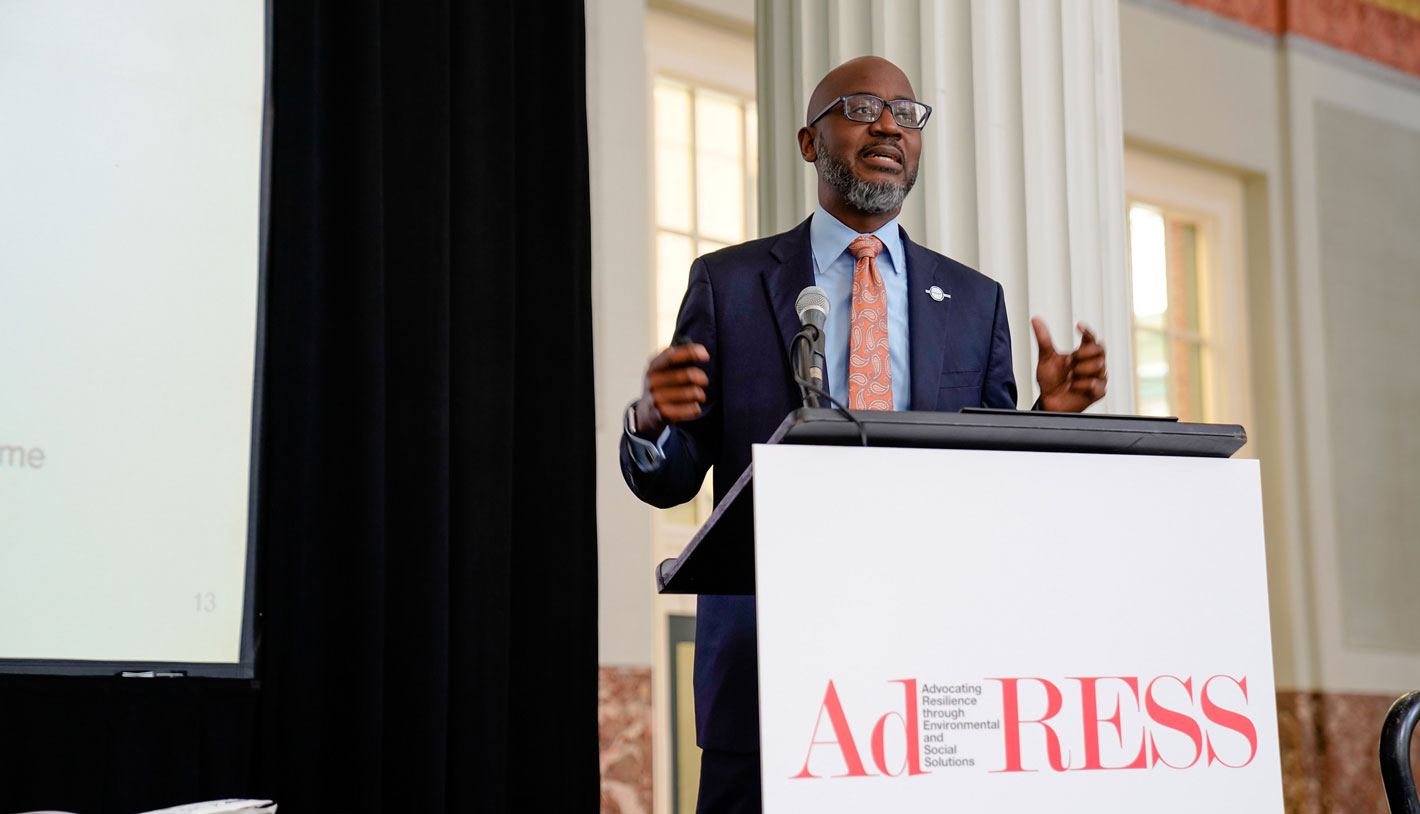

Building Equity in Communities
100 Resilient Cities (100RC) Managing Director of City Resilience Delivery for North America Otis Rolley promotes integrated resilience strategies to ensure the future of urban centers. He emphasizes that equity and inclusion are essential elements to a city’s success.
“Social cohesion has to occur for there to be true resilience,” he argues. “To build resilience, to improve quality of life for residents in both good times and bad, cities must confront racial divisions, institutional bias, and other issues that lead to inequitable outcomes for communities.”
Last month the Page Foundation in partnership with 100RC hosted AdRESS (Advocating Resilience through Environmental and Social Solutions) – Connecting the Conversations. As the closing keynote speaker at AdRESS, Rolley drove home the idea that equity is a primary challenge for building resilience. It was a recurrent topic throughout the event as many of the panelists and subject matter experts noted the disparity in recovery from a disaster among communities of privilege and underserved or economically depressed areas. The primary challenges discussed were communication, outreach and engagement at the local level.
Keynote speaker Steve Wymer of Nextdoor stated that a large part of the success of the social platform is due to its inclusivity because it is based on geography rather than closed groups of friends or related professionals. “Everyone and anyone in the community can participate on our platform,” said Wymer. “It is for all residents.” Pagers in attendance were able to relate; many either relied on Nextdoor to remain informed during the days-long flooding event caused by Hurricane Harvey or their colleagues did.
In New Orleans, dedicated outreach managers act as community liaisons for building awareness and getting feedback on resilience efforts. “Equity strategies for our underserved neighborhoods are built into all of our resilience planning efforts,” explained Ryan Mast of the New Orleans Office of Department of Homeland Security. At AdRESS Mast noted that the city is engaging local residents about on-site water storage and use and subsidizing small-scale investments in storm water management and home elevation for low- and moderate-income homeowners. There are also programs in place to train underemployed residents to work on resiliency-related efforts.
David Perkes of Gulf Coast Community Design Studio echoed Mast’s emphasis on engaging communities in rebuilding and building forward. “Our work helps communities and neighborhoods better position themselves when they are dealing with cities,” he said. “Community resilience only comes when the people are involved and engaged in the design process.”
Perkes who has helped rebuild neighborhoods throughout the Gulf Coast region, cited the work of Building Community Workshop (BCworkshop), which incorporates a lengthy programming session with future residents prior to design development and continues to engage residents through design and construction. “Groups like BCworkshop understand community-driven design,” said Perkes. “You have to have to listen to the people to help foster a more proactive and engaged neighborhood.”
Rolley noted that ultimately cities have a real opportunity to lead the way in meaningfully addressing racial disparities, promoting inclusivity, and strengthening social cohesion. Urban resilience must be about survival, adaptation and growth for everyone.
For more than a decade, the Page Southerland Page Foundation has supported scholarship and research dedicated to architecture, building science and technology, historic preservation, landscape architecture, and urban design. Through a multi-disciplinary approach, it promotes the role of design in solving complex social and environmental problems through partnerships with scholars, professionals, institutions, and policymakers. Page Foundation is a 501(c) (3) charitable organization.
11/28/2018
Related Posts
- Countdown on Carbon: A mandate for the design profession
- Pagers on the Front Lines of COVID-19 Effort
- Faster building performance analysis helps architects meet AIA 2030 goals
- Tempering the Temporary: Improving thermal comfort and safety in relief shelters
- Evolving Our Building Sciences Practice
- Protecting San Francisco’s Trees
- Nurturing Resiliency through Relationships








